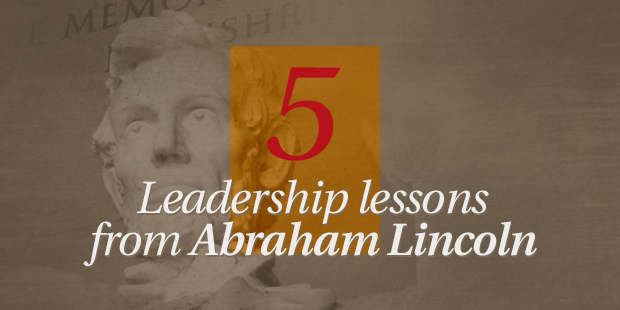
Rethinking Church Planting
Jimmy Scroggins is a pastor friend of mine. He currently serves at First Baptist Church in West Palm Beach, Florida.
Jimmy is passionate about church planting in multiple forms and is involved in a mission network called SendSFL. I’m excited to see new methods of church planting that can supplement and support traditional planting strategies. Today, Jimmy joins me on the blog for a discussion about the future of church planting.
Trevin Wax: One of the things we’ve talked about before is how the church planting structure in North America puts the planter under enormous pressure to attract givers to the new plant, not necessarily new converts. Elaborate a little on how you think our structure and strategy can unintentionally hinder passionate evangelism.
Jimmy Scroggins: First, I want to be clear that I have huge admiration for church planters. Their boldness and confidence in God to go out and start a church from scratch is amazing to me. I am also a strong supporter of church planting churches and organizations, and I am truly grateful for the current wave of resources that is being directed towards new church starts in North America.
Trevin Wax: That said, you have some misgivings about some church planting strategies.
Jimmy Scroggins: Yes. I worry that our standard strategy for funding planters is unlikely to start the number of sustainable, evangelistic, healthy congregations needed to advance the kingdom relative to the growing population and increasing lostness of our culture. The favored approach seems to go like this:
- Identify a talented, driven, and probably well-networked planter.
- Help him raise several hundred thousand dollars to fund him and his church for 3-5 years.
- Count on him to lead his new church to grow fast enough so that by the time his funding runs out his church is self-supporting.
Trevin Wax: What’s is deficient about this strategy?
Jimmy Scroggins: The math simply does not work. Take Southern Baptists, for example. We are working to plant 15,000 churches in North America by 2022. If we are going to raise 100k each (a pretty conservative number for most contemporary church planters) to fund those churches, we are going to invest 1.5 billion dollars in the successful church plants (if you make it 300K per church – that makes it $4.5 billion). Assuming a 70% success rate (which would be phenomenal to the point of unrealistic), we would have tried to start around 21K churches, with a total investment of over $2 billion. I am afraid the math simply doesn’t work if we are hoping to plant that many churches in that amount of time.
Trevin Wax: Besides the math, what concerns do you have?
Jimmy Scroggins: I’m afraid this strategy forces the church planter to focus on attracting givers more than on evangelizing lost people. It really doesn’t matter how many lost people he reaches or baptizes; his sustainability and “success” will be evaluated and celebrated only if his fledgling congregation gives enough money.
The planter’s ability to remain “in business” is directly tied to his ability to shift the costs from his sponsor churches to his own congregation before his startup money is exhausted. It is unlikely that new believers will be able to carry that load fast enough. He has to go hard after transfers from other churches in order to make it work. So again, the focus of the church planter almost has to be on attracting givers as opposed to reaching lost people.
Trevin Wax: So where do we go from here? Your church, while certainly intentional about funding traditional church plants, is also involved in other kinds of gatherings. Tell us about that.
Jimmy Scroggins: As you said, we are indeed participating in traditional church plants, and by traditional I mean the funded approach with full-time planters and some type of “launch-large” strategy. But we are convinced that these types of plants take too long, cost too much and fail too often – at least if we are going to get to 15,000 by 2022. We have begun to develop and invest in two different approaches that we believe will be more effective, especially in metropolitan contexts where Southern Baptists have been weak.
First, we are going all in for bivocational church planting. We are working to identify, recruit, train, and place men in new church plants who will never require a full-time salary from their church. There are scores of white collar, middle and upper income, educated, successful professionals in our churches who have untapped capacity in terms of their time and energy. These guys can be motivated and equipped to plant churches. Of course, God has to call them, but we can help them hear God speak.
Previous generations of church and denominational leaders have basically said:
“If you are called to the ministry, you quit your job, you move your family several states away for seminary-based training, you learn to live in near poverty, and you help your wife and kids adjust to their new life and their new standard of living in their new town. And about the time you get halfway settled into the seminary community – you graduate and move again to a small church in a small place and begin your journey in ministry.”
No wonder very few people will voluntarily heed the call!
We believe there is a better way. We want to train church planters from our own church to plant new churches in our own community. They don’t have to move their families. They don’t have to find new jobs. They don’t have to strike out on their own. We can pour into them, help them develop their spiritual gifts, help them discover their unique calling, help them find a neighborhood that needs a gospel church, and ultimately help them form a church planting team.
Trevin Wax: What experience have you had in developing the bivocational church planting strategy?
Jimmy Scroggins: At First Baptist Church of West Palm Beach, we have established a church planting residency program to equip bivocational church planters from our church family. The response has been overwhelming. We have ten men in our first cohort this year, and the waiting list for the 2013 group is already established.
We are pretty excited about bivocational church planting because it is a way to help make the math work. Although these churches will look very much like traditional, funded church plants, we believe they will have a greater chance of success because the pastors will not have to depend on the fledgling church as their sole source of financial support.
Trevin Wax: What’s the other approach you take?
Jimmy Scroggins: We are committed to reaching people that most church plants cannot afford to reach. There are thousands of people in our community who are homeless or very poor. Many are immigrants and many are in our community illegally. Traditional church planters can’t spend time reaching these folks. They can’t give enough to support the new work. But we have recently discovered a way to effectively go after these people.
One of our sister churches in West Palm is teaching us how to plant “rabbit churches” (so named because they multiply really fast). This church uses lay people to start new congregations in homeless camps, trailer parks, apartment complexes, and retirement centers. We are learning from this approach, and we are seeking to plant churches for “the least of these.”
A “rabbit church” looks like a middle-aged deacon pulling up to the homeless camp with metal folding chairs stacked in his pickup. He arranges those chairs around a tree and calls the men and women out for donuts, singing, and Bible study. These people can’t or won’t give much money at all, but since this type of church doesn’t cost anything, they make budget every single week.
Trevin Wax: How will these methods affect the future of church planting?
Jimmy Scroggins: We are convinced that these two approaches – using bivocational planters to start traditional-looking church plants, and using lay-preachers to start “rabbit churches” – could be the future of church planting. And since these two strategies are very similar to effective approaches found in the Bible and throughout church history, we are confident they are going to work.
One thing’s for sure: traditional, funded, full-time church planters are not going to plant enough churches to truly penetrate the lostness of North America.
Read more from Trevin here.

Tags: Church Planting, Jimmy Scroggins, Multiplication, Trevin Wax

























